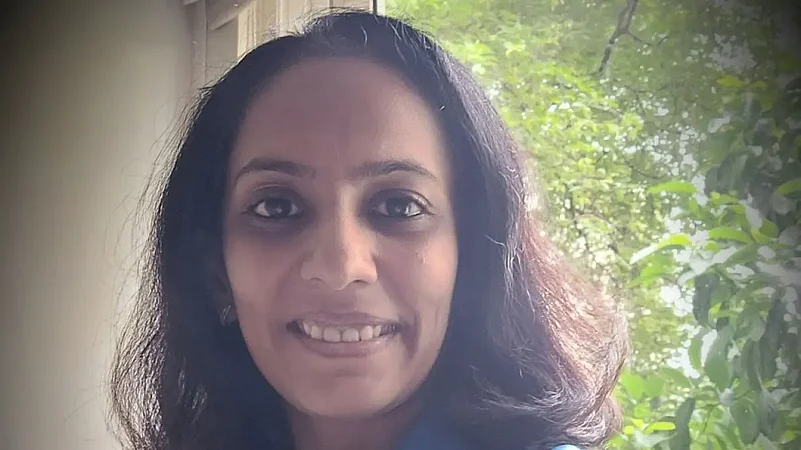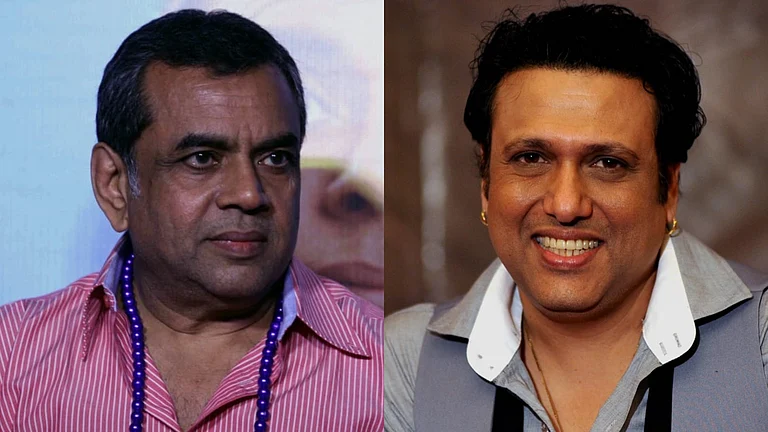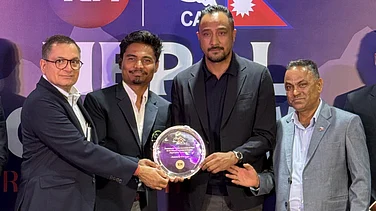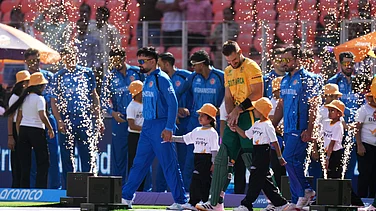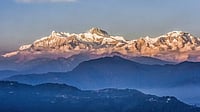Two leading names from recent Indian sports history elaborated on how the National Games benefit sportspersons. However, they cautioned that the Games need to be held regularly, without the frequent rescheduling that preceded the ongoing 36th National Games in Gujarat. (More Sports News)
Former badminton Olympian and Commonwealth Games silver-medalist Aparna Popat, and Asian Games gold-medalist tennis player Gaurav Natekar, felt that the Games achieve a range of objectives – from giving athletes an opportunity to identify with their state, getting the feel of an Olympic-style event, to improving the country’s sporting infrastructure.
“Having the National Games is important for the athlete to get connected to their state identity. While you want to become a national hero, you also want to become a hero for the state,” said Aparna, who participated in the 1997 and 1999 National Games in Bengaluru and Imphal, respectively. She also represented India at the 2000 and 2004 Olympics.
“From the state point of view, we expect them to spend money on sport, so they should also have an opportunity to showcase their efforts and talent and get credit in return,” she said. “Events like the National Games are an opportunity to up the infrastructure, and create a buzz for sport within the state. Besides, budgeting is always a problem in Indian sport, so if you have the National Games, you have that much more budget to play with.”
Natekar, whose honours include two golds at the 1994 Asian Games and representing India in the Davis Cup, told Outlook, “The National Games are a good concept. How else do you get a healthy competition among states? How do you build team spirit? How do you create some competition which is on the lines of the Olympics in India? With the National Games, a lot of fringe players get a feel of what it is like to work in a team environment. A lot of talent can be unearthed. It’s just unfortunate that they’ve been postponed for so many years.”
One answer always comes up whenever athletes are asked about multi-sport events – they speak of friendships and interactions with fellow athletes that such events facilitate. But is it just lip service, or do these bonds have substance?
It’s often the latter, said Aparna.
“I made a lot of friendships, be it at the Olympics, Asian Games or National Games,” she said. “I feel the duration of the Games (a fortnight) makes it different. It’s not like you play a three-day or four-day tournament and then leave. At least that’s not the case with badminton.”
Natekar explained how much an athlete could learn from watching coaches or senior pros. He provided an example from his own career. It was not at the National Games, but in a similar scenario, and is therefore relevant to the subject.
“When I got into the Indian Davis Cup team, it had Ramesh Krishnan, Leander Paes and Zeeshan Ali. The late Naresh Kumar was the captain. Just to have a personality like Naresh Kumar, who achieved a lot in his playing career, who also achieved a lot in business, just to see him up close and how he handled the whole team, was an education.
“It was also instructive to see how the established players practiced. Ramesh was the most senior player on the team and the quiet sort. Leander was at the other end of the spectrum, young and pumped up. Their practice sessions were different, too. Leander would practice a lot and be intense. Ramesh would practice not more than an hour and a half. He knew exactly what he wanted to work on.”
Once, while playing doubles with Ramesh in practice in Jakarta, Natekar accidentally hit him in the back.
“It was my very first day of Davis Cup practice, and I thought it would be my last,” Natekar said. “But Ramesh was nice about it, and said these things happen. You get to see athletes as human when you spend time with them.”
Lastly, when asked what could be done better with the National Games, Aparna said, “Just be more regular [in hosting them]. We’ve seen a lot of gaps between editions. Of course, this time it was a different scenario due to Covid. But in future, as our athletes get more professional, the Games schedule needs to be decided well in time, so that athletes can plan for them.”






